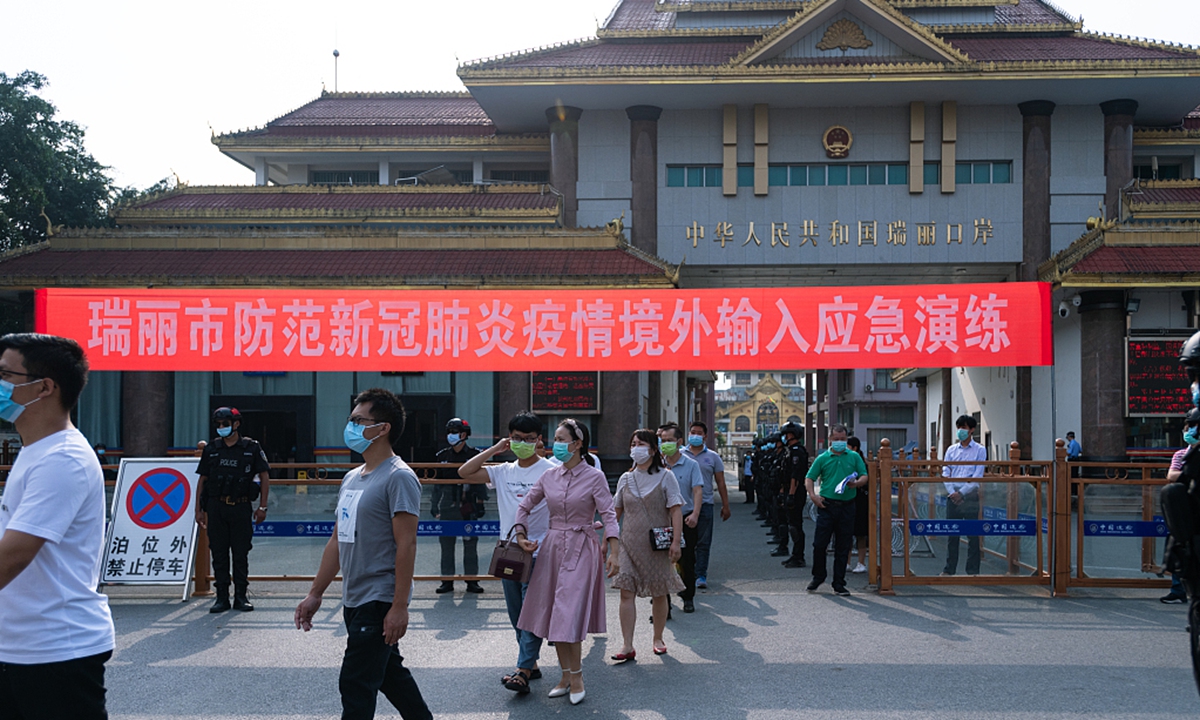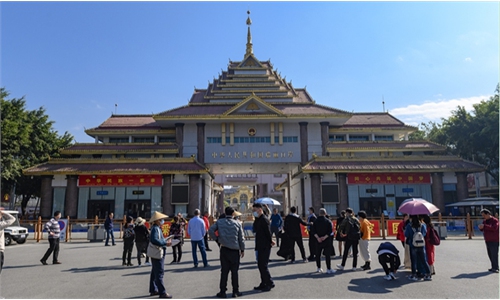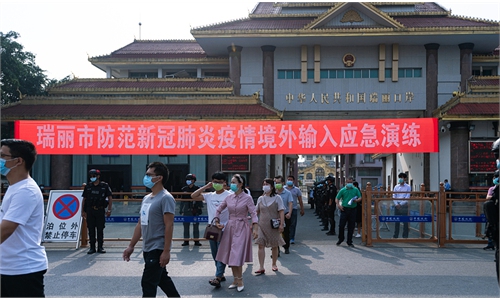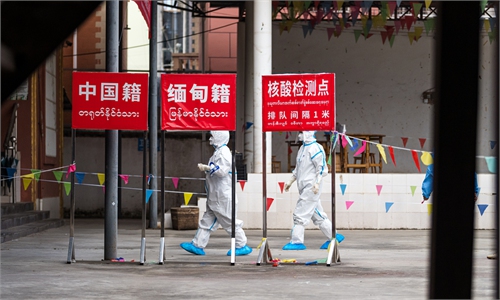SW China's border city Ruili sticking to dynamic-zero, 'tackles 42 resurgences in past year'

A drill on preventing imported COVID-9 cases exercised in Ruili File Photo: CFP
Authorities in the border city of Ruili in Southwest China's Yunnan Province announced on Friday the city has achieved dynamic zero and effectively curbed 42 domestic resurgences connected to imported COVID-19 cases in the past year, with the longest "zero-new case period" being 17 days.
To ensure the control results are sustainable, the city continues the "not leave Ruili unless necessary" principle with specific policies for individuals based on infection risks, a city official revealed on a Friday press conference.
As Ruili is under "grid" management, if a grid discovers a case, all people reside or work in the grid can't leave the city for a period of 28 days, equal to two quarantine periods, after no new cases are reported.
Others seeking to leave the city must complete a 7-day period of home quarantine, present two negative nucleic acid reports in 48 hours, 24 hours each, before leaving. Border villagers are subject to collective quarantine instead of home quarantine.
The quarantine for a grid which reports no infections in a month is three days. Grids that have no cases for three months are only required two testing reports.
The new policies have streamlined the flow of people in and out of the border city that faces the intense pressure from new infections due to its long, meandering borderline with Myanmar, and long-standing personnel and goods exchanges between the neighboring regions.
The geographical and sociocultural conditions have led Ruili to become a unique case in China's overall dynamic zero strategy, as tight control in the city, which is famous for its jade trade, has caused inconvenience for many and impacted local livelihoods. The government has allocated subsidies to residents and businesses that have been severely impacted by pandemic control measures to help them overcome the challenges.
The approach taken in Ruili has also prompted external attacks on China's dynamic zero strategy, but experts noted as the virus keeps mutating and the side effects of the COVID-19 remain largely unclear, borders and ports are now crucial bridgeheads in defending the entire country against the virus.
In addition to Ruili, 18 other border cities and counties also require residents to present negative nucleic acid test reports should they wish to travel, according to a provincial notice on epidemic control addressing the upcoming festival season. The requirements remain valid until March 15, 2022.



